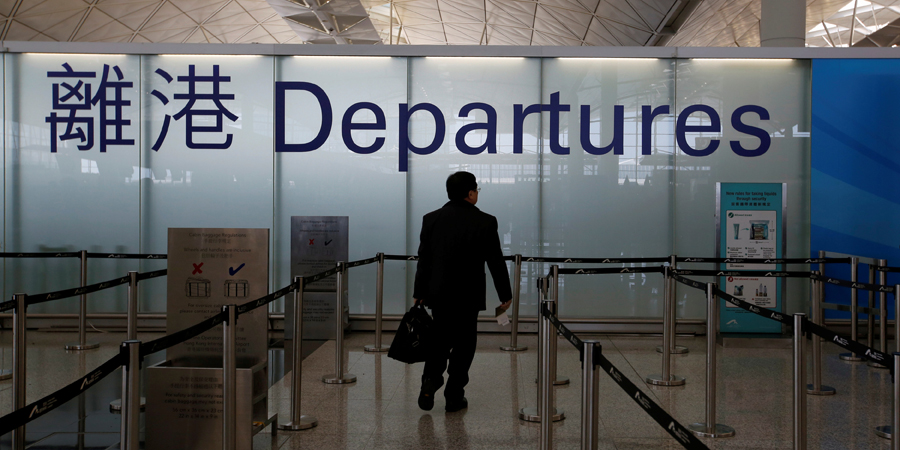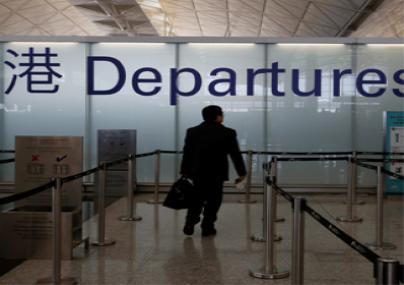
Recruiters in Hong Kong are bracing for a talent crunch as people leave, but they do not see this as an issue for law firms, which they say can tap into plenty of local talent to make up the deficit.
Hong Kong lost some 93,000 residents in 2020, followed by another 23,000 in 2021. In 2022, the departures appear to be picking up steam, with roughly 53,000 exiting Hong Kong during the first two weeks of March alone, according to the city’s Immigration Department.
Since the onset of COVID-19 in 2020, Hong Kong has adopted stringent curbs and restrictions to keep the virus at bay. These efforts, often in line with those of mainland China, have become a significant driver of departures and why many graduates have chosen to look elsewhere for jobs. Before May 2022, the government required a compulsory quarantine time for as long as 14 days of anyone arriving back in Hong Kong.
This loss of talent is being keenly felt by recruitment firms such as Ambition, which reported a 40 percent decline in candidates for entry-level positions compared to before the pandemic. David Roberts, CEO of executive search consultancy Carlyle Kingswood Global (CKG), acknowledges that there have been “some departures” amongst Hong Kong law firms. “It is our observation that the attrition has been both expatriates returning (or) seeking to return home and Hong Kong lawyers relocating (or) seeking to relocate to other jurisdictions,” he notes.
Nevertheless, this year has been particularly busy for CKG, says Roberts, despite the level of market uncertainty about what lies ahead and the fact that law firms are adopting a cautionary approach to hiring. He adds that departures have been predominantly at the mid and senior levels. “Junior lawyers are focused on harnessing their skill-sets in order to achieve marketability on the lateral market (if desired),” says Roberts.
Although facing a general talent crunch, Roberts still thinks Hong Kong has enough talent resources given the nature of the Hong Kong legal market.
“The nature of the Hong Kong legal market is such that there is a continuing focus on Hong Kong admission, Chinese Language skills (Mandarin and Cantonese), and experience in dealing with PRC clients and there has been more than sufficient local talent to fill this resource deficit,” says Roberts.
Given law firms are open to excellent overseas candidates with strong Chinese-language skills and a commitment to the region, he says that the majority of roles are filled locally.
“This has been the trend over the past decade. In addition to lateral hires from overseas, we are seeing lawyers enter the Hong Kong market by way of an internal transfer or a secondment to the Hong Kong office,” notes Roberts.
Janet Chan, head of the legal practice at Page Executive, a recruitment agency, echoes Roberts in saying law firms have developed a stronger preference for local candidates as they are more stable and more likely to stay for a longer period.
Additionally, in a financial hub like Hong Kong, the most common practice areas are corporate M&A, capital markets, litigation, finance, and funds within the immediate Hong Kong market. “There is a rich resource of legal talent in Hong Kong and law firms have at their disposal a wide selection of candidates within the mainstream practice areas,” Roberts says.
Moreover, law firms have positioned themselves competitively to attract top lawyers with Chinese language skills and relevant experience from other jurisdictions such as Singapore, Australia, and the U.K. Therefore, Roberts thinks the departures at this stage are creating less of an issue for law firms seeking new talent in Hong Kong.
To cope with the talent drain issue, Roberts says there are some generic pay-out schemes and more flexible arrangements around quarantine. But broadly speaking, he feels his law firm clients are competitive enough on compensation, titles, and diversity of work to secure the right talent for their teams.
At the same time, the HKSAR government is also examining the admission scheme for mainland talent to help with the talent deficit. The government recorded a rise of 20 percent in the number of people entering Hong Kong for long-term employment under the General Employment Policy and the Admission Scheme for Mainland Talents and Professionals in 2021 compared with 2020.
Going forward, as COVID-related restrictions are lifted, law firms may have access to a wider pool of candidates as they look to expand in Hong Kong, says Gareth Dowse, managing director at recruitment agency SD Legal.
“International law firms are still positive about Hong Kong’s position as a hub for international business, and they are maintaining a good level of hiring,” Dowse says.
